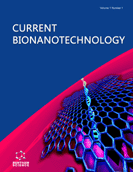Abstract
Evaluating the interactions of nanomaterials (NMs) with the immune system is becoming an essential part of assessing nanosafety, not only for human health, but also for organisms living in different environments. The interactions between NMs and the components of the immune system in wildlife have been recently intensively investigated. Invertebrates represent more than 90% of animal species and are widespread in all environments, where they are subjected to a wide range of stressors. Despite invertebrates lack an adaptive immunity, they have developed a potent and complex innate immune system showing many commonalities to that of vertebrates. Conservation of the main mechanisms of innate immunity may greatly help understanding the possible interactions of NMs with the immune system across different taxa. However, the utilization of invertebrate models for immunosafety studies requires a thorough basic knowledge on the physiological regulation of the immune response of the tested species, together with information on particle behavior in the receiving environment, as well as routes of exposure in different cells and organisms. In this work, available data on the effects of NMs on the immune system of invertebrates are summarized. In particular, the results obtained in the marine bivalve, the mussel Mytilus, are summarized, demonstrating that mussel immune cells, the haemocytes, represent a suitable model for investigating the impact of NMs on innate immunity. These results underline how the utilization of invertebrate models represents a promising field for designing environmentally safer, "green" nanomaterials.
Keywords: Nanosafety, innate immunity, invertebrates, marine bivalves, Mytilus, haemocytes, immunomodulation, nanosafety.
 50
50 2
2 1
1 1
1


